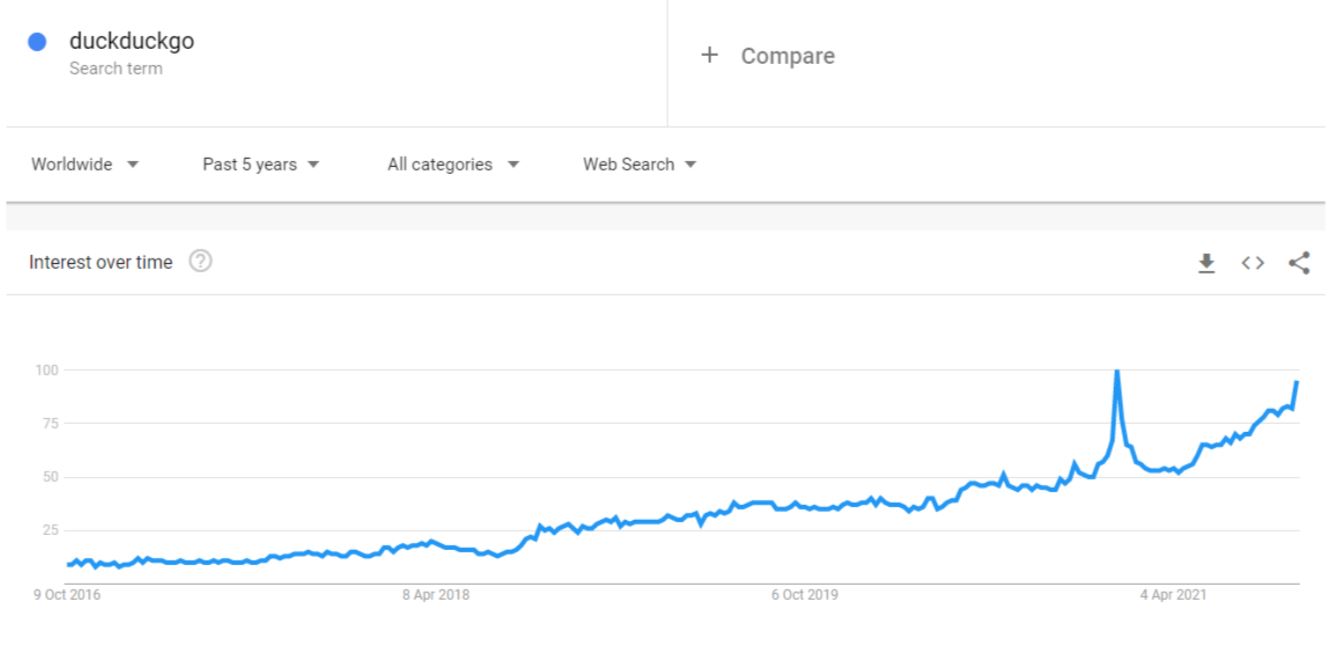Internet search engines are part of the everyday life of almost five billion people, and almost all (93%) of online traffic comes from one of them. Although most of the global market share is owned by Google (92%), it is far from the only search engine that is available.

More search engines from Google
Over time, Alphabet Inc. has dominated the vast majority of the global Internet traffic and by now Google Search is not the only search engine owned by the company. Since the launch, the company has acquired or created many other well-known search engines:
YouTube
By far the largest video search engine, YouTube, has grown tremendously in the last ten years, and from the original video repository site it has become the second largest search engine in the world and even a full-fledged social media network. Although SEO for YouTube is quite different from traditional HTML pages, the principles based on user intent remain unchanged.
Google Images
The Google Images search engine is a surprisingly interesting traffic channel for driving traffic to the site, especially for e-commerce product pictures. However, most image searches seem to be mainly connected with gaining inspiration for formulating follow-up queries.
Google Maps
Google Maps is a key search engine for local SEO, which displays results for queries such as “restaurant berlin” or “car shop near me”. For the local searches, Google maps take a significant part of the above-the-fold section in the SERP and therefore is important to include in the overall SEO strategy.
Mezi další internetové vyhledávače od Googlu patří například Google News, Google Flights nebo Google Shopping. Z těchto oborově zaměřených vyhledávačů je patrné, že cílem Googlu je snaha o ovládnutí co nejvíce oblastí a zajistit, aby uživatelé neměli potřebu z ekosystému Googlu odcházet. Jestli se to společnosti Alphabet podaří, je otázkou, jejíž odpověď závisí především na tom, zda uživatelé dokáží akceptovat (prozatím) méně relevantní výsledky alternativních vyhledávačů za cenu většího soukromí a ozdravení konkurence.
Other search engines from Google include for example Google News, Google Flights or Google Shopping. At this point it’s clear that Google’s goal is to take control of as many industries as possible and ensure that users don’t have to leave Google’s ecosystem. Whether Alphabet succeeds is a question whose answer depends primarily on the user behaviour. If internet users are able to accept less relevant (at least for now) alternative search engine results, the reward will be increased privacy protection, actually owning personal data and healthier competition.
Alternative search engines
With the increasing number of data leaks and personal information misuse, there are more and more new platforms emerging. In most of the cases, it is exactly the protection of users’ privacy that is the main USP and priority of these companies.
DuckDuckGo
Probably the best known alternative search engine is DuckDuckGo which is on the opposite side of the privacy spectrum compared to Google.
This search engine does not retain data about search history or cookies, however, the lack of this data is reflected in often irrelevant results. As a consequence, it is sometimes necessary to rewrite the query several times before getting the desired result. However, due to the increasingly important online privacy topic, this is a very small price to pay for keeping the data safe.

Swisscows
Another alternative search engine is Swisscows, which presents itself as a family-friendly search engine and which, similarly to DuckDuckGo, does not collect any user data.
StartPage
Even though StartPage sources the search results directly from Google SERP, the company does not track and store any historical data which seems to be the ultimate combination of relevancy and privacy.
Search Encrypt
Although Search Encrypt uses local data, they are not shared with any third parties and remain encrypted in their own internal databases. The data is also being automatically removed after a certain period of time.
Ecosia
A very interesting search engine is Ecosia, which combines IT with planting new trees. According to their site, Ecosia is devoting all its profits to improving the earth’s climate and utilizes only renewable energy sources for their operations. Like previous search engines, this one does not store any user data either.

Interesting search engines in other countries
Although Google controls most of the global market, their market share is less significant in some of the countries. The competing local search engines are for example:
- Baidu – This is a dominant search engine in China with a vast majority (82%) of market share.
- Yandex – In Russia, this is the second most used search engine with approximately 42% market share
- Seznam – This Czech search engine with a quarter of total searches is still resisting Google, since Seznam was created first and is the synonym for “The Internet” for many people.
- Yahoo Japan – Similarly to the Czech Republic, Yahoo is also holding around a quarter of market share in Japan.
- Naver – Originally the first search engine in South Korea, it currently holds 14% of the local market.
- Bing – Although Bing is not a completely unique search engine for a particular country, it has a significant 33% market share just in the USA and seems to be continuously growing.
Industry specific search engines
Besides a generic search engine returning any information based on complex variable user queries, there are also search engines focusing on a specific industry, such as accommodation, flight tickets or entertainment. A few examples are below:
Tripadvisor – A key search engine for local services, hospitality and entertainment. Among others, user reviews seem to be a crucial ranking factor for local searches in catalogues like these.
Booking – One of the many search engines in the realm of accommodation and travel. Not only are the hotels trying to rank on Google but also on Booking and other similar websites.
YellowPages – Formerly in paper form, now in digital, YellowPages is a search engine primarily focused on local services. Over time, their function has been partially replaced by Google.
Amazon – In many cases, Amazon is the ultimate website where the user journey, that once started with an inspirational or transactional query, ends. After users gain the necessary product information from YouTube reviews, blog posts or comparison articles, they end up at Amazon doing the final search and making a purchase.
Facebook – What once started as a platform for connecting friends, ended up as a search engine for individual people and their interests. Worth mentioning is also Facebook Marketplace as a global search engine for second hand products.

